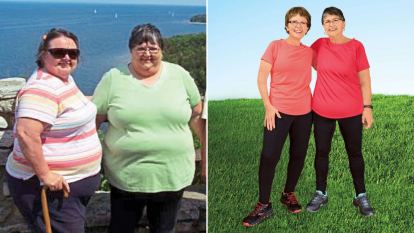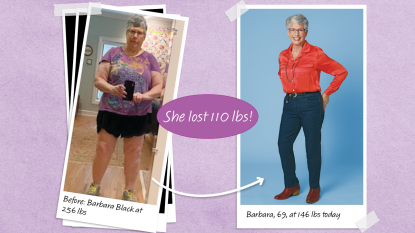11 Proven Ways to Beat Winter Brain Fog
Boost your memory by up to 44 percent by doing these clever (and fun!) activities.

Wouldn’t it be great to shake off the winter blahs and enjoy more of the fun you love? It’s easy with these science-proven tips.
Indulge in a sweet treat to help you focus without fatigue.
When you’re unwinding with a good book, there’s a delicious way to make your “me time” even better. Savor a few bite s of dark chocolate! Australian scientists say its flavanols send oxygen rich blood to the brain, helping you focus without losing steam.
Boost creativity with ‘Good Vibrations’.
Next time you need to think up creative solutions (like how to rearrange your living room to fit your mom’s easy chair), turn on upbeat songs like The Beach Boys’ “Good Vibrations.” You’ll come up with ideas that are 24 percent more inventive, Dutch scientists say. Why? Fast-paced songs spur arousal in the brain. This makes you mentally flexible so you think of unusual options, plus more persistent so you hunt for ideas until you find one that’s perfect.
Cozy up.
Wrap yourself in a blanket when you need to get your creative juices flowing. Soft surfaces prompt out-of-the-box ideas, a study in Frontiers in Psychology found. Credit a phenomenon called embodied cognition, in which touching a squishy object prods your brain to adopt that same flexibility, enabling you to see more possibilities.
Speed mental math with a simple whiff.
Everyone knows coffee is a reliable pick-me-up. Now, science proves that simply inhaling the pleasing aroma of freshly brewed java can wake up your brain, whether you’re comparing deals on snow boots or solving a sudoku. A study in the Journal of Environmental Psychology found women who inhaled the scent of coffee experienced a 22 percent surge in math skills. Researchers say that’s because we’ve been trained to associate a cup of joe with greater mental alertness, so our brain automatically works harder at tasks requiring calculations like figuring out the best price after applying coupons when we sense coffee is nearby.
Stand tall.
Simply pulling back your shoulders and straightening your spine makes it 21 percent easier to do math, according to investigators at San Francisco State University. Good posture lowers the stress hormone cortisol, which makes you feel more confident about working with numbers, so you become instantly better at it.
Master multitasking by cracking a smile.
Long to-do list? First, do something that makes you smile, like looking at cute animal photos online. City University of New York scientists say a joyful mood ups the production of a brain chemical called dopamine. This improves working memory, which helps you juggle multiple pieces of information at once, and executive control, which helps you coordinate several actions while staying on task.
Water your plants.
Japanese scientists say 10 minutes of easy physical activity daily, such as tending to plants (like these winter houseplants), improves multitasking ability in folks who didn’t think they had this skill. Movement boosts a brain chemical needed to handle multiple tasks.
Remember details by opening the curtains.
Letting the sunlight shine through your windows as you’re learning something new, such as trying out a new recipe for red velvet cake, enables you to pick it up faster, say University of Arizona scientists. Exposure to the blue wavelength light in sunshine activates areas of the brain that help you process new information and retain it longer.
Take a nap.
A short snooze after taking in new information helps it stick, Swiss scientists say. As you rest, bursts of activity called sleep spindles organize and store information in the brain’s memory center, where it stays put.
Sharpen recall by closing your eyes.
Make phone chats even more enjoyable by shutting your eyes. British scientists say it aids recall by 44 percent, helping you remember names, dates and other details. Without visual distraction, your brain allots more resources to its memory regions, making them more effective at retrieving that cute anecdote you wanted to share.
Step back.
Imagine walking backward, and you’ll recall 25 percent more, a British study shows. It signals to the brain to go back in time to when memories were filed away, making them more vivid.
This story originally appeared in our print magazine.













